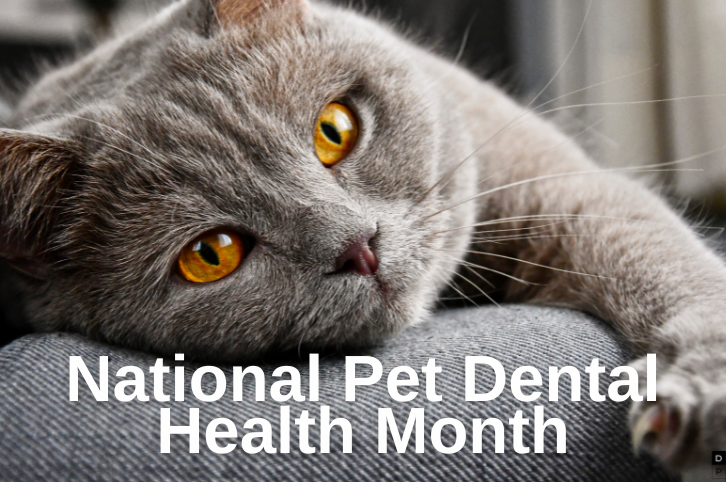More Than Love And Romance
February isn’t just about love and romance, it’s also a time to focus on the dental health of our beloved pets. As National Pet Dental Health Month, February is an annual reminder of the importance of oral care for our furry companions. Let’s delve into why pet dental health matters and how you can ensure your pet’s smile shines bright all year round.
Why Pet Dental Health Care Is Important
We go to the dentist to avoid dental problems and keep our teeth and gums healthy. Pets can suffer from the same dental problems we do. They may develop plaque and tartar build-up, gum disease, and tooth decay. Your pet may also experience:
- Infected or abscessed teeth
- Broken teeth
- Periodontal (gum) disease
- Oral cysts
- Oral tumors
Neglecting your pet’s dental hygiene can lead to serious health consequences for them. Pet dental disease can even lead to other systemic health problems. Bacteria that’s built up in their mouths can make its way into their bloodstream, causing lung, heart, kidney, and liver problems.
Signs That Your Pet Needs Professional Dental Care
Your pet may develop:
- Bad breath
- Discolored teeth
- Broken teeth
- Swollen gums
- Bleeding gums or teeth
as a result of dental disease. Pets easily mask their pain, so pain and discomfort won’t always be obvious, but your pet may:
- Drool
- Have a decreased appetite
- Refuse to eat
- Drop food instead of eating it
If any of these symptoms appear, it’s important to schedule an appointment with your pet’s veterinarian.
Dental Care All Year Long
Prevention is as important as cure, so it’s important to get into a regular routine of providing good dental care for your pet. Ideally, their teeth should be brushed or wiped daily. If that’s not possible, then it should be done at least three or four times a week. When caring for your pet’s teeth at home:
- Use the right size toothbrush (specifically for a dog or cat)
- Use wipes approved for pet dental care
- Use only pet-safe toothpaste
- Make sure your pet eats the right diet
- Offer your pet dental-friendly treats and chews
The primary goal is to eliminate plaque from your pet’s teeth. Plaque builds up and becomes tartar, which can be removed above the gumline, but causes significant damage below it. Advanced periodontal disease can even damage the jaw itself. It’s imperative not to let your pet’s oral health deteriorate to that stage.
Professional Pet Dental Care
During your pet’s annual wellness visit, their veterinarian will examine their teeth and mouth as part of their check-up. They will look for signs of:
- Infection
- Inflammation in the gums
- Bleeding gums or teeth
- Congenital issues including a cleft palate
If your pet needs dental care from their veterinarian, they will require anesthesia. Although it may seem extreme, administering anesthesia before performing even simple procedures like a pet dental cleaning eliminates stress and fear for them as well as ensuring they don’t move during the procedure and cause more damage to their mouths.
Magnolia Springs Veterinary Clinic
Magnolia Springs Veterinary Clinic in Mount Pleasant, WI can provide good dental care for your pet. We will initially do an examination to look for oral health concerns. We’re experienced in providing pet dental care, so we’ll make our recommendations to help prevent other health problems from developing. Contact us today so we can help your pet stay healthy and happy.
Image credit: Pexels

